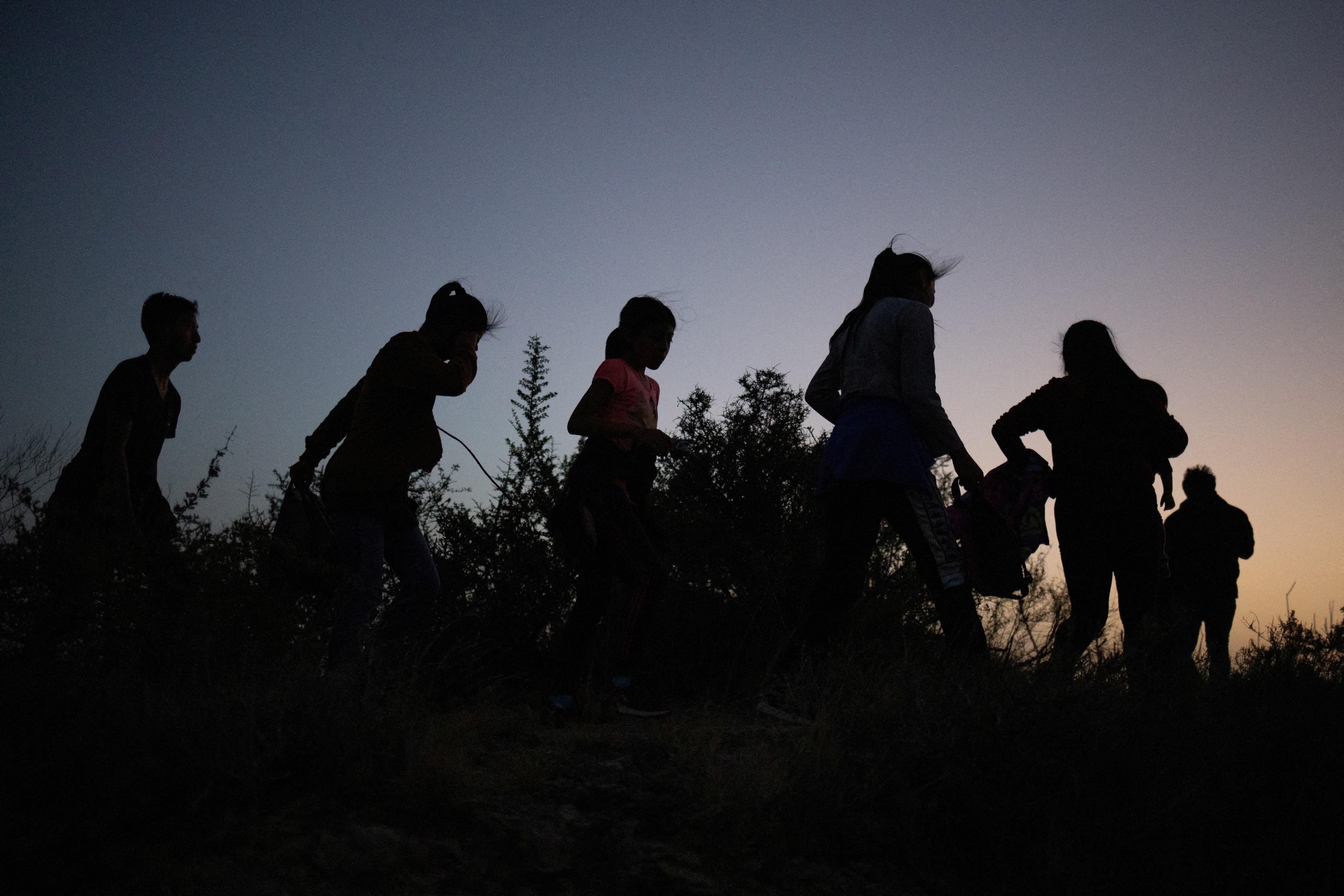US immigration policy: The unfixable political gift that keeps on giving for the GOP
If you had to pick a problem that US politicians keep failing to solve election after election, it might be immigration. Democrats and Republicans love to complain about how broken the system is — and yet always find a way to blame each other when there's an opportunity to fix it.
Unsurprisingly, many Americans are (sort of) tuning out. Fresh polling shows that immigration is only the fifth most important issue for them ahead of the Nov. 8 midterm election. But immigration is still a very big deal for GOP voters in certain battleground states and congressional districts, where Republicans are campaigning hard on border security and immigration law enforcement.
Once the pro-immigration party, the GOP is now anything but. That makes sense as immigration is priority No. 2 after the economy for Republican voters. Railing against what they like to call the Democrats’ “open borders” policy fires up the base in states like Florida or Texas.
In the run-up to the midterms, Florida Gov. Ron DeSantis and Texas Gov. Greg Abbott — two Republican rising stars eyeing a run for president in 2024 — have used undocumented people as political pawns by shipping them to Democratic-run “sanctuary cities” that won’t help federal agents detain migrants who entered the US illegally.
President Joe Biden, for his part, has been forced to pivot on immigration to deal with record numbers of migrant arrivals since he took office. After initially promising to undo the previous administration’s “inhumane” approach to border restrictions, Biden is now all in on Title 42, a Trump-era law allowing the expulsion of asylum-seekers on public-health grounds.
The president's immigration U-turn has irked progressives, who had high hopes Biden would do big, bold things like grant US citizenship to so-called Dreamers, undocumented people who crossed the border as minors and live under fear of deportation. In other words, some on the left wing of his party feel that, on immigration, the president is pretty much like Trump — sans kids in cages.
Hold up: Does this mean Republicans and Biden now actually agree on something and might cut a deal on comprehensive reform? Not a chance.
"It's a politically difficult issue, [and] there is a lot of disagreement about what should be changed," says Julia Gelatt, a senior policy analyst at the non-partisan Migration Policy Institute. In her view, the single biggest problem is that current US immigration laws are "very outdated and don't align with how migration is happening today, the push and pull factors, or really our economic interests."
There is broad popular support for some actions, such as offering a path to citizenship for Dreamers and giving more visas to highly educated professionals in STEM fields. But "once you start talking about immigration, things get very heated and emotional, [so] it's difficult for Congress to get anything done," she adds, and Trump's harsh rhetoric has made it even harder.
So, are there any reasons to be hopeful? For Gelatt, “it’s always a safer bet to be pessimistic, a congressional axiom of immigration.” Even with American farmers and companies struggling to hire workers due to a pandemic-induced labor shortage that immigrants could fill, the process remains too slow and backlogged. Businesses are not happy about it, but their “voices haven't been loud enough to counter” those of immigration hawks in Congress.
Finally, the timing is bad too.
"When there are high numbers of arrivals at the border, and there's a sense of a lack of government control over immigration," Gelatt explains, "that tends to decrease support for immigration overall, and creates a much harder climate for debating changes."
